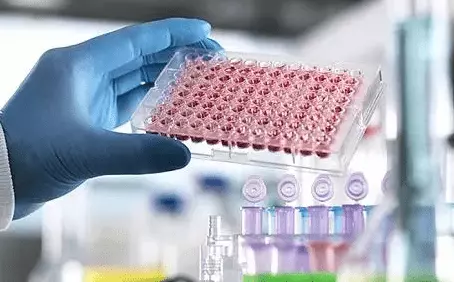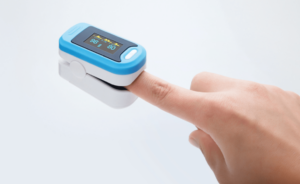
Do I need to take a CT for “coughing out my lungs”? Can I have dinner and drinks immediately after recovery? Response from Zhong Ming
On the evening of Dec. 27, the second guest in the series of live broadcasts of the “New Crown Epidemic Prevention” in Shanghai was Zhong Ming, director of the Department of Critical Care Medicine at Zhongshan Hospital of Fudan University.

Photo
During the Q&A session with the host and netizens, Zhong Ming talked about the need to be alert to “silent hypoxia” in the elderly, who sometimes cannot respond as quickly as young adults to abnormalities in their bodies due to the degeneration of organ functions as they age. “Silent hypoxia” may cause the elderly to progress and delay medical attention.
Zhong said that studies of small-molecule anti-neo-coronavirus drugs before and after they hit the market have shown that early use in people with a tendency to become seriously ill can indeed reduce the rate of serious illness, and early use is recommended for these people after infection. However, for most of the general population, the use of this drug is not needed.
Many people have been coughing a lot lately, even to the point of “coughing out their lungs. Zhong Ming said that the new coronavirus may cause damage to the upper respiratory tract, and a dry cough is a common symptom before repair, but if you cough up a lot of yellow sputum, it may involve the lungs, so it is recommended to seek medical attention.
Right now many people who have been “Yang Kang” are very eager to return to their normal lives, and may dine and drink and play cards all night during the holidays. In this regard, Zhong Ming said, although in the early recovery period of the new crown, antibodies are produced, the same strain of virus in a short period of time the probability of secondary infection may not be high, but there are many other factors that can cause infection in winter, such as the influenza virus, or some other viruses and pathogenic microorganisms that can cause upper respiratory tract infections. The probability of contracting these other pathogenic microorganisms is greatly increased in a state of irregularity in work and rest. Therefore, in the early stage of recovery, it is not recommended to drink excessively and live irregularly during the New Year holidays.
In response to the hot topics of public concern, Zhong Ming gave answers one by one. The following are some of the questions and answers.

Infographic
Q: How exactly do you distinguish between asymptomatic, mild and serious illnesses? Is there any way to determine whether the infection is mild or severe?
Zhong Ming: In fact, asymptomatic is known literally, if you do not feel any symptoms after getting a new crown, you are asymptomatic. Any symptoms, such as fever, cough, sore throat, are called symptomatic.
Depending on the severity of symptoms including whether they progress to the lungs, patients are divided into light, common and heavy, critical types. Generally speaking, the symptoms are all in the upper respiratory tract, such as fever, sore throat, cough, nasal congestion, runny nose, no pulmonary imaging changes, and no other manifestations of hypoxia or other organ insufficiency, which are all classified as mild.
However, along with these upper respiratory symptoms, if there are signs of pneumonia with pulmonary infiltration, such as hairy glass-like changes seen on CT, proving the presence of viral pneumonia, this is the common type.
If there is a further increase in the extent of pneumonia, with hypoxemia, such as oxygen saturation below 93, or with respiratory rate greater than 30, or with significant symptoms of chest tightness or shortness of breath, or with deterioration of other organ functions, we classify it as severe.
Critical, which means that the patient needs one or more organs and means of life support, these patients are classified as critical.
Q: Which symptoms can be isolated at home and which symptoms require hospital visits?
Zhong Ming: Generally speaking, it is clear that mild symptoms can be isolated at home, while heavy or above must be treated in hospitals. For the public, it may be more difficult to define the common type, the common type patients will have some pneumonia performance, may be in the transition stage to heavy, so these people need to monitor their own symptoms. For example, in addition to upper respiratory symptoms such as sore throat, nasal congestion, runny cough, you also feel a tightness in the chest, shortness of breath, easy to wheeze, or monitor a drop in blood oxygen than usual, below 95%, which means you may be a common type or above, it is recommended to go to the hospital to see.
Q: Recently, people are concerned about “silent hypoxia” in the elderly, what are the symptoms of “silent hypoxia”? If we are at home, how can we tell that the elderly have “silent hypoxia”?
Zhong Ming: The so-called “silent hypoxia” that we are talking about this time refers to the elderly, especially the elderly, because as they grow older, the whole organ function degenerates and they are not sensitive to many stimuli. Therefore, they do not respond as young adults should, even though they have a tendency to become seriously ill.
For example, there is infiltration in the lungs, which means there is hypoxia, and the normal response of a person should be to breathe faster and there will be a kind of compensation. But these elderly people don’t have this reaction, they look calm and silent, and these conditions are what we call silent hypoxia.
It is dangerous because it can make the elderly seem calm, but in fact it has already progressed towards serious illness, so it may delay our judgment of the condition and delay the time to send them to the doctor in time.
This is where the use of a finger clip oximeter helps, it has an objective indicator, and even when the symptoms of the elderly are not so obvious, we may still be able to actively screen for the elderly or vulnerable people progressing towards serious illness through active monitoring of blood oxygen.
It is also important to note that the so-called “silent hypoxia” is not completely untraceable. For example, if the elderly person is not usually so silent, but is unusually silent at this time, this is also a reminder that his condition may be aggravated and should be paid more attention to.

Photo
Q: There is a smart health bracelet at home, can it be used as a basis for blood sugar, blood pressure, blood oxygen testing?
Zhong Ming: Smart bracelets to monitor blood pressure, blood oxygen or blood glucose is not quite the same as the other traditional methods we are talking about, and there is no evidence that it can be safely used as medical-grade monitoring. Therefore, it is not recommended to use these wearable devices for monitoring. It is still recommended to use medical devices that have been certified and tested to measure these values.
Q: Who is likely to develop severe disease after contracting a new crown?
Zhong Ming: Generally speaking, people with a weak and compromised immune system are prone to develop severe disease. On the one hand, the elderly, especially the elderly, and on the other hand, people with specific diseases. For example, tumor patients who have recently received chemotherapy may have a restricted immune system; or organ transplant patients who need to use anti-rejection drugs, i.e., immunosuppressive drugs; or autoimmune diseases, such as rheumatoid arthritis, which require hormones or other immunosuppressive drugs and can impair immune function; and those with poorly controlled diabetes mellitus, which can seriously affect the immune system. Seriously affect the immune system; as well as particularly tired, irregular work and rest, the immune system of these people will also become weak. It is these people with immune system problems that are more likely to develop serious illnesses.
Q: Children and pregnant women are also a soft group, if they are infected with the new coronavirus, is the risk of developing severe disease high?
Zhong Ming: Based on clinical experience and literature reports over the years, the rate of children developing severe disease after infection with Neovirus is the lowest, lower than that of adults and even lower than that of the elderly. There is also no evidence that pregnant women have a higher rate of developing severe disease.
Q: Is it necessary to prepare to stock up on the special drugs for neostriae, and can these special drugs, which have been “sealed”, really reduce the incidence of severe disease?
Zhong Ming: The drugs we are talking about are actually small-molecule antiviral drugs, which have been shown in studies before and after the market launch to reduce the hospitalization rate and the rate of serious illness in people with a tendency to become seriously ill when used early. This small molecule antiviral drug is recommended for those who are in the priority group. But for most of the general population who are not predisposed to severe disease, there is really no need to use this drug.
Q: It is important to get vaccinated, but does the vaccine produce antibodies for only a few months?
Zhong Ming: Each person’s organism has different characteristics and reacts differently to the vaccine, so the level of antibodies produced by each person is maintained for a different period of time, so it may be difficult to summarize the situation of all people in one sentence.
Q: What should I do if I have recurrent fever at home after “yang”? Do I need to go to the hospital at this time?
Zhong Ming: The average duration of illness after infection with Omicron is about 7 days, so fever within 7 days may be common and does not indicate a tendency for serious illness. However, if you still have fever for more than a week, you should consider that the disease has progressed and may become pneumonia, which should be taken seriously at this time. You can decide whether or not to go to the hospital by combining the monitoring of blood oxygen and self-perception.
Q: Recently, there have been many cases of myocarditis induced by infection with the new crown, and some people have developed myocarditis after “Yang Kang”.
Zhong Ming: Because of the possibility of viral infections becoming myocarditis, myocarditis has some preliminary symptoms, at that time may be frequent arrhythmias, there will be panic, heart beating randomly, chest tightness and these manifestations. The actual fact is that when you have panic, palpitations, feel the heart beating chaotically, and even chest tightness performance, this time to go to the hospital in time to see.

Photo
Q: Should I go to the hospital to have a CT scan if I cough so much that my lungs are coming out?
Zhong Ming: If it is simply an irritating dry cough, it does not mean that you have pneumonia. If there is pneumonia, there is also shortness of breath and chest tightness. Many times with upper respiratory tract infections, there may be a process of inflammation and damage to the upper respiratory tract. And in this state, it is easy to feel a foreign body sensation and cough easily, which are both signs of inflammation and damage to the upper respiratory tract. It takes time for the inflammation to subside and for the damaged mucosa of the upper respiratory tract to be repaired, and it is very common that you may keep having a dry cough until it is repaired.
So for a short period of time, you can go and wait for it to heal itself. If the cough is very pronounced and affects your quality of life, sleep, and daily routine, you can use some cough suppressants to relieve the symptoms. However, it is important to remember that sometimes these acute inflammatory conditions can become chronic inflammation of the upper respiratory tract if they are not fully repaired, in which case the cough can become a very prolonged symptom. A good immune system is important, and it is recommended to have a regular routine during this time of conversion to keep your body in relatively good condition and try to repair the previously damaged areas, including the upper respiratory tract. Complete bed rest is not encouraged either. Proper exercise coupled with nutrition will facilitate recovery.
If the cough is accompanied by phlegm, and there is a lot of phlegm every time, this may not only be a problem of inflammation of the upper respiratory tract, but may also involve the bronchi or lungs, especially if you cough up a lot of thick yellow phlegm, it is recommended to go to the hospital.
Q: With the New Year’s Day and Chinese New Year holidays coming up, many recovered citizens are eager to return to their normal lives, especially during the holidays when people may gather for meals, entertainment and travel. Some of them may drink alcohol, some may play cards all night, will these lead to secondary infection?
Zhong Ming: First of all, in the early stage of recovery, it is still encouraged to work and rest regularly, avoid drinking alcohol and spicy food stimulation, otherwise the body’s function may be further weakened, or the damaged function is not effectively recovered, and the immune system may also have problems.
Although in the early stage of recovery from a new crown, antibodies are produced and the probability of secondary infection from the same strain within a short period of time may not be high, there are many other factors that can cause infection in winter, such as influenza virus, or some other viruses and pathogenic microorganisms that can cause upper respiratory tract infections. The probability of contracting these other pathogenic microorganisms is greatly increased in a state of irregularity in work and rest. Therefore, in the early stage of recovery, excessive alcohol consumption and irregular life during the New Year holidays are not recommended.


Average Rating